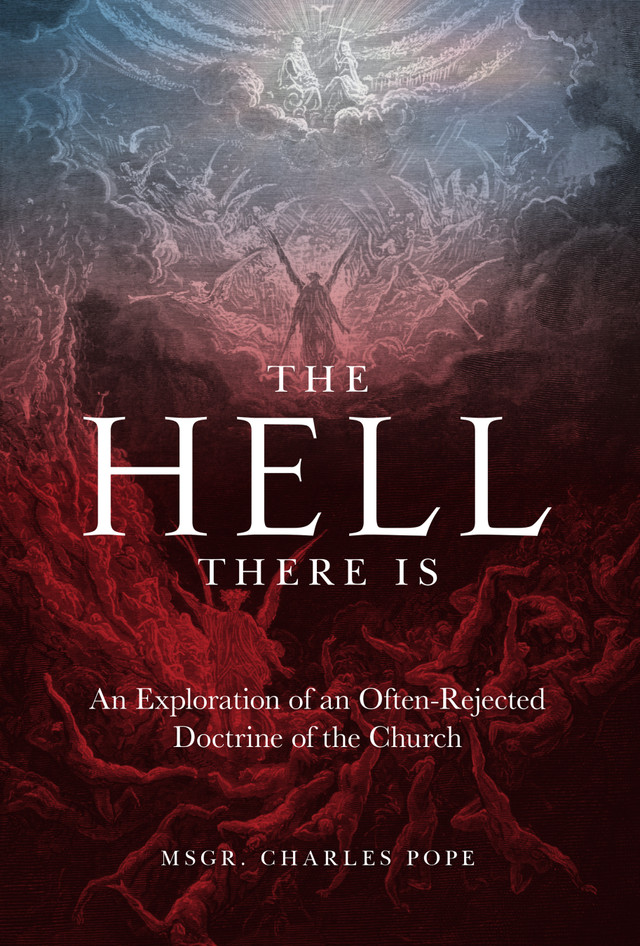Why would anyone choose hell over eternal bliss? For the same reasons we choose sin here on earth. Discover these faults and renew your pursuit of heaven.
Consider some of the following reasons why many are lost because they resist the admonitions of Jesus.
We Have Concupiscence
Prior to the effects of original sin, it is taught (e.g., Council of Trent, Denzinger 3514, 1926) that Adam and Eve had the preternatural gift of “integrity.” That is, their human appetites and desires were completely submitted to the intellect. They had authority over passions, feelings, and desires. This is why their sin in the garden is so puzzling and serious. After the Fall ushered in original sin, things were turned upside down. The passions became unruly and demanded unreasonable attention and fulfillment. This state of excessive and irrational desires is called concupiscence. In effect, we are besieged with desires of the lower appetite contrary to reason. Because of original and personal sin, the subordination of our reason to God is damaged, and we begin to lose our sense of the supreme good and our ultimate end. If we do not discipline ourselves, the lower appetites become increasingly unrestrained, and we permit them to take control.
Our “Flesh” Is Opposed to Our Spirit
In every human being, there exists a spiritual nature that is open to goodness, beauty, and truth; it is a part of us that seeks God and the highest things associated with Him. But opposed to this is another deep drive that St. Paul calls “the flesh” (sarx, in Greek). The flesh is not to be understood simply as the body. More accurately, it is an attitude of rebellion and a deep preference for the lower things of this earth, such as wealth, power, popularity, and, yes, the inordinate desires of the body. The flesh does not want to be told what to do; it rebels against limits and thus opposes the teachings of God and His Church. Heaven and spiritual things are a bore to the flesh; its preoccupation is with worldly and trendy things, anything but God and the things of God.
We Have Hard Hearts and Stubborn Wills
Surely these flow from the flesh and from concupiscence. But it deserves to be highlighted as a very common disposition in the human family. God, speaking to us through Isaiah the prophet, said, “I know that you are obstinate, and your neck is an iron sinew and your forehead is bronze” (Is 48:4). Note, he is talking about us and how easily defiant we can be!
We Are Obtuse in Our Desires
As an offshoot of concupiscence, we can easily note that if something is forbidden, we seem to want it all the more. Strangely, we know things that are harmful to us, but we want them in abundance. We also know things that are good for us, but we are often averse to it. We like our sweets and our salty snacks, but vegetables rot in the refrigerator. In fact, it even seems that we become averse to things because they are good for us! And we desire things all the more because they are forbidden! St. Paul laconically observed, “When the commandment came, sin sprang to life” (Rom 7:9). In the desert, the people of Israel longed for melons, leeks, onions, and the fleshpots they enjoyed in Egypt. Never mind that they were slaves then. When it came to the bread from heaven, the holy manna, they said, “We are disgusted with this wretched manna” (Nm 21:5).
We Don’t Like to Be Told What to Do
We bristle at correction. Even if we know a correction is needed and true, that we ought to do something or to stop doing something, the mere fact that someone is telling us often makes us dig in our heels and refuse. And if we comply, we often do so resentfully rather than wholeheartedly.
We Are Not Docile
To be docile means to be teachable. When we were very young, we were fascinated with the world around us and kept asking, “Why, Mommy?” or “Why, Daddy?” As we got older, our skull thickened. We stopped asking why. We figured we knew better than anyone around us. The problem just worsens with age unless grace intervenes. St. Paul lamented, “For the time will come when people will not endure sound doctrine; but wanting to have their ears tickled, they will accumulate for themselves teachers in accordance to their own desires, and will turn away their ears from the truth and will turn aside to myths” (2 Tm 4:3–5).
We Love Distraction and Don’t Listen
Even when saving knowledge is offered to us, we are too often tuned out, distracted, and unwilling to hear it. Attention deficit disorder is nothing new in the human family. God said through Jeremiah, “To whom shall I speak and give warning, that they may hear? Behold, their ears are uncircumcised, they cannot listen; behold, the word of the LORD is to them an object of scorn; they take no pleasure in it” (Jer 6:10). Note that this text speaks not only of distraction but of a willful distraction. We are often distracted because we want to be distracted. Sitting quietly and listening carefully to the Lord is, in some sense, terrifying. So, instead, we seek out YouTube videos or lose ourselves in social media.
We Are Opinionated
We tend to think that something is true or right merely because we think it or agree with it. There is a saying: “Don’t believe everything you think.” We usually smile when hearing this because we know just how deep that tendency is. Most of our views and opinions are stubbornly and pridefully held. We cannot bother with facts when our mind is made up. There is nothing wrong with having opinions, even strong ones, when it is about what is certainly right and true. But it is amazing how often we stubbornly resist even when Scripture or the Church’s formal teaching challenges our opinion. Never mind that God is just a little smarter than we are. His official teaching in the Scripture and the Doctrine of the Church is inspired; our opinions are not.
We Have Darkened Intellects Due to Unruly and Dominating Passions
Our strong and unruly passions cloud our mind and seek to compel our will. As we saw above, without training and practice in virtue, our baser faculties come to dominate our higher faculties, making unreasonable demands for satisfaction. We love to tell ourselves lots of lies. We suppress the truth and our senseless minds become darkened (cf. Rom 1:21).
We Are Lemmings
We are too easily swayed by what is popular. We prefer modern notions to ancient and tested wisdom. Whatever the fad or fashion, no matter how foolish, harmful, or immodest, many clamor for it. Hollywood stars get divorces, and soon enough, everyone is casting aside biblical teaching against it. The same goes for many other moral issues. What was once thought disgraceful is now celebrated and paraded on Main Street. Like lemmings, we run along with the crowd to celebrate what was once called sin (and is still sinful). Instead of following God, we follow human beings. We follow them and the “culture” they create, often mindlessly.
We Live in a Fallen World with Fallen Natures Governed by a Fallen Angel
Many seem to abide by all of this quite well. We will so easily make compromises to build our place in this world. Rare today is the longing for heaven or a sober appreciation of the Lord’s warnings about wealth and worldliness. Even our so-called spiritual life is mainly predominated by prayers for the Lord to improve our worldly standing. So not only is the fear of hell largely diminished today, so is the longing for heaven. Few sermons, seminars, or retreats make much mention of heaven, let alone focus on it. You’d almost never know that the one and only goal of our whole existence is to be with God forever in heaven, in joys unspeakable and glories untold. If heaven is mentioned, it is usually at funerals but in a rather presumptuous and sentimental way that does not inspire the necessary repentance and the battle along the narrow way to get there.
ooo
This article is taken from a chapter in The Hell There Is by Reverend Monsignor Charles Pope which is available from TAN Books.









